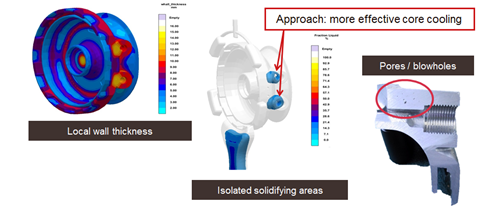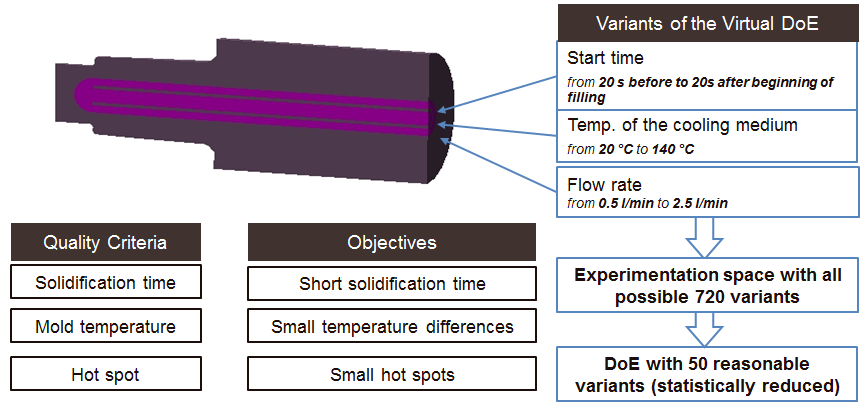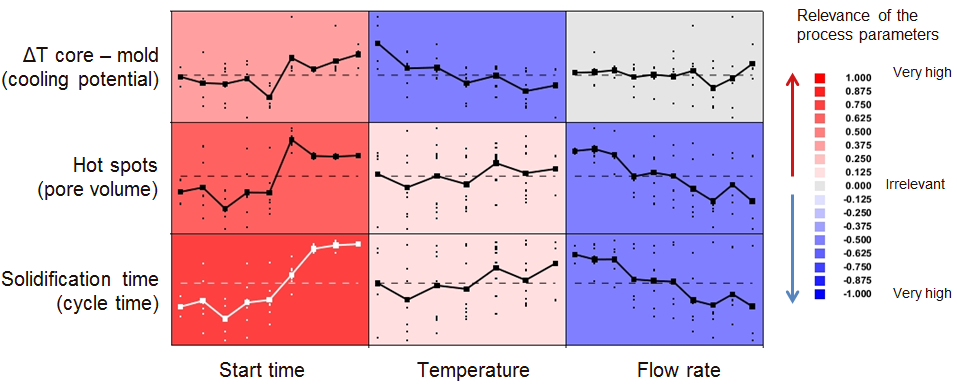Why Early Planning Is Crucial!
The optimization of cycle times, die lifetime, microstructures and distortion of castings under the required specifications for component quality and process economy is daily-required practice. In this context, the layout and case-specific optimization of mold temperature control are of outstanding importance. For this task, today, product and process developers have modern mold manufacturing processes and virtual optimization tools at their disposal. These enable high added value from the idea to the series production of a component.
A hydraulic component serves here as an example, which, by design, involves material accumulations and, thus, risks of solidification porosity: a classic in aluminum die casting! It was examined which additional cooling measures in the mold can help to minimize these risks. This involved the comprehensive testing of the small degrees of freedom available.
In the approach chosen in Figure 1, it was possible to increase the cooling of the contour cores in the hydraulic connections without negative effects in other areas. With the aid of the simulation, practically all conceivable cooling variants were calculated in a very short time and evaluated in terms of their effects on the casting and the process in a "virtual test plan".
The statistical evaluation capabilities of virtual DoE make it possible to determine at a glance early on how sensitive the casting and process are to the different cooling parameters and to determine the best compromise depending on the weighting of the objectives.
Further potential for efficient temperature control in die casting is provided by three-dimensional, conformal temperature control systems such as can be produced by generic AM processes. They have been state of the art in polymer injection molding for years and are also increasingly gaining attention in die casting.
Early planning is crucial, because conformal temperature control systems and "thermally nimble" molds make the casting process both more sustainable and more cost-effective, while dramatically increasing controllability.
If you want to learn more about the enormous potential of intelligent temperature control of die casting molds, we invite you to attend the FORUM "Process and Component Optimization Through Efficient Mold Temperature Control" (September 22 to 23, 2022), initiated by voestalpine High Performance Metals and MAGMA.
MAGMAacademy Contact
Dipl.-Ing. Tristan Kotthoff
Malaika Heidenreich
Phone: +49 241 88901-699
Mail: academy@magmasoft.de



